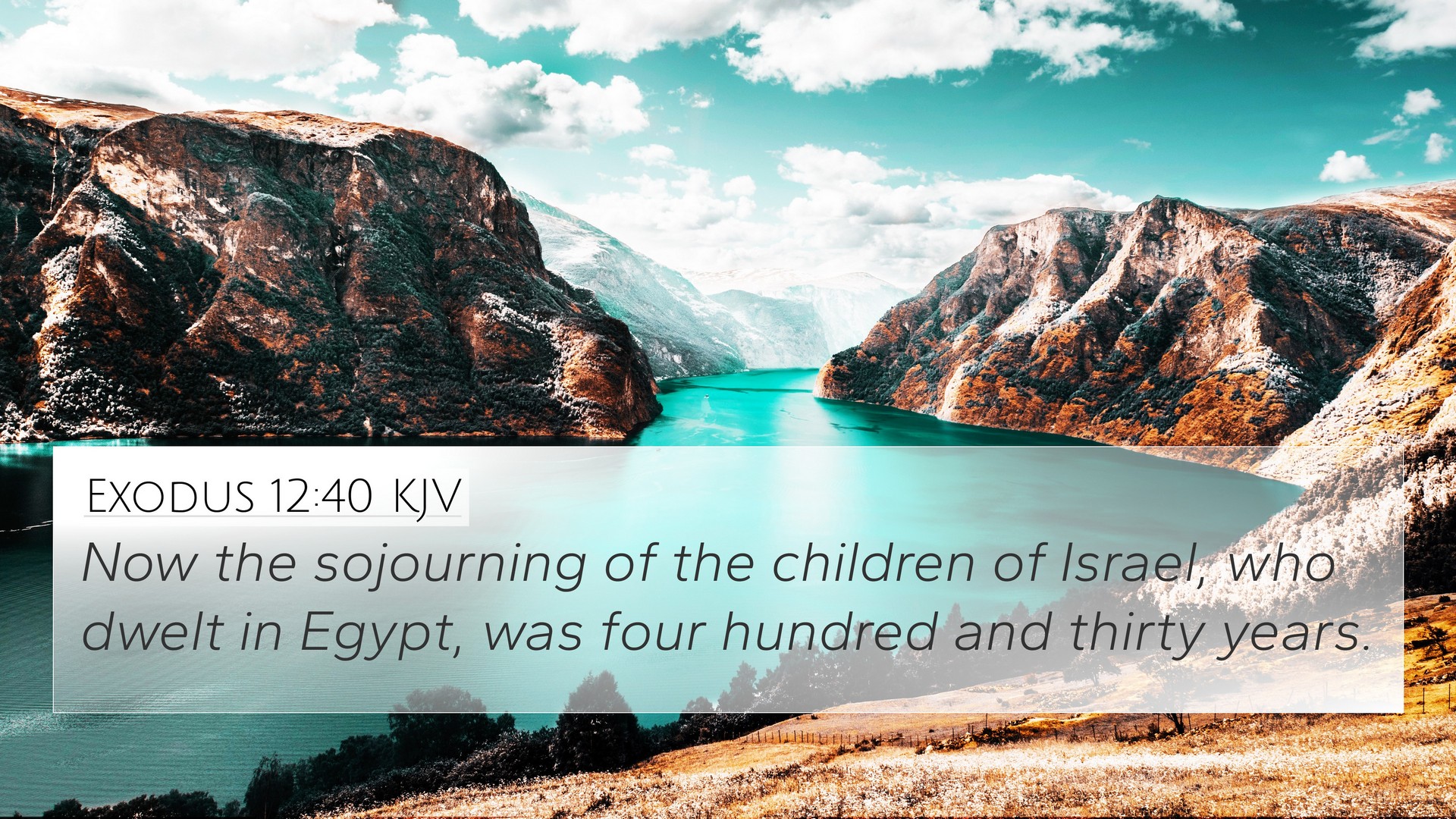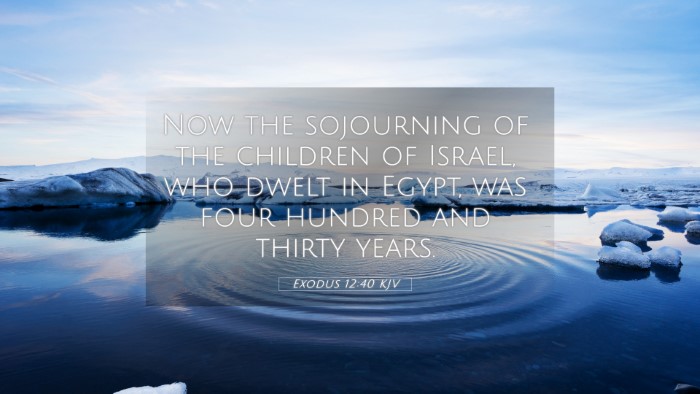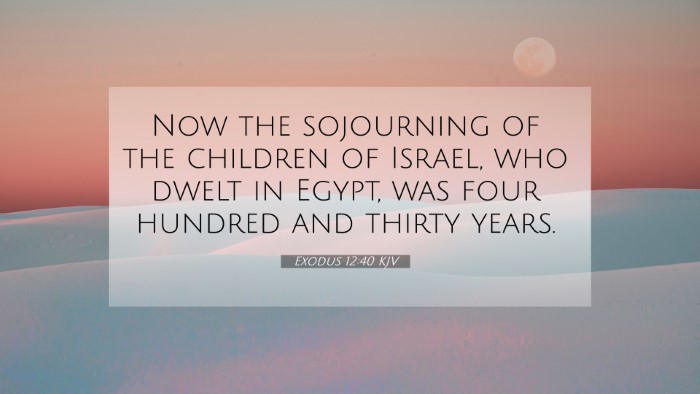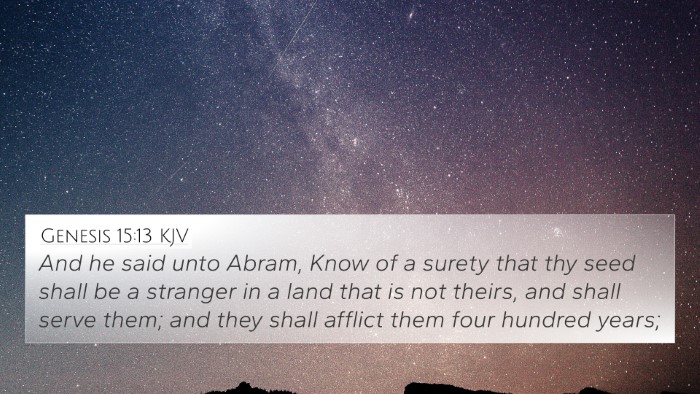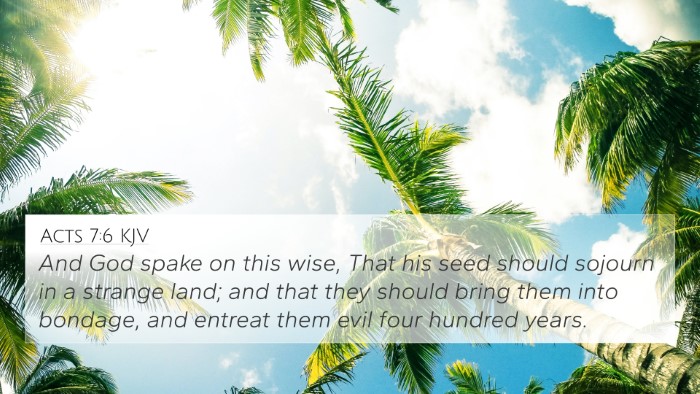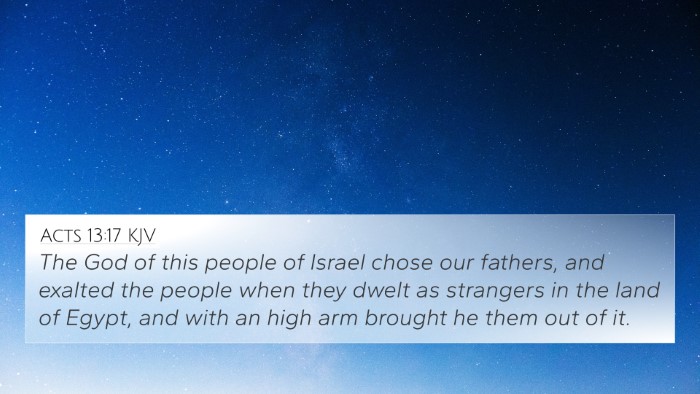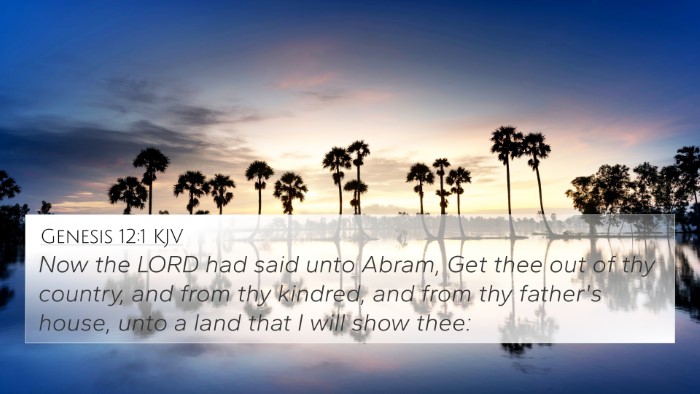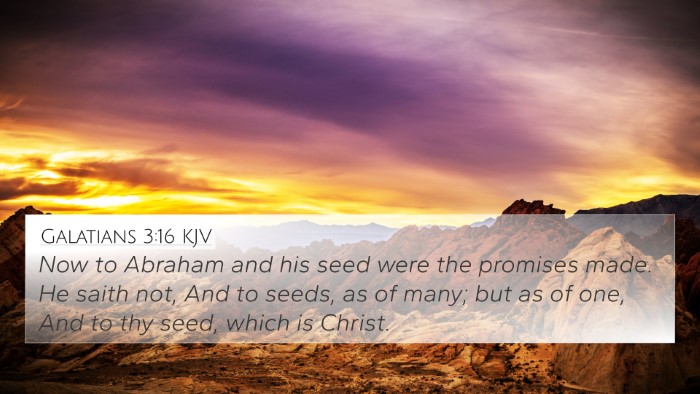Exodus 12:40 - Summary and Interpretation
Exodus 12:40 states, "Now the sojourning of the children of Israel, who dwelt in Egypt, was four hundred and thirty years." This verse is pivotal in the narrative of the Exodus, marking a significant milestone in the history of the Israelites. It reflects not only the duration of their stay in Egypt but also the fulfillment of God's promise to bring them out.
Contextual Background
In the context of Exodus, the Israelites find themselves enslaved in Egypt after Joseph's death. God had promised Abraham that his descendants would be strangers in a foreign land, and they experienced this as they were subjected to harsh labor. This verse concludes the period of suffering and sets the stage for the miraculous deliverance that would follow.
Commentary Insights
- Matthew Henry: Henry emphasizes the significance of the 430-year timeline, which symbolizes the enduring patience of God and the faithfulness in His promises. He notes that while the Israelites were in a foreign land, God was preparing them for their ultimate redemption.
- Albert Barnes: Barnes points out the historical and prophetic implications of this duration. He mentions that this period fulfills the prophecy given to Abraham, providing both a literal and figurative interpretation of the Israelites' suffering and subsequent liberation.
- Adam Clarke: Clarke highlights the importance of this verse in relation to biblical chronology. He discusses how the 430 years encompass both the time in Egypt and the years of wandering, suggesting a comprehensive understanding of Israel’s journey towards the Promised Land.
Key Themes and Connections
This verse serves as a bridge linking several significant biblical themes:
- God's Promises: It echoes God's promise to Abraham in Genesis 15:13-14 about his descendants being strangers in a land not their own.
- Deliverance: It sets a foundational context for the miraculous Passover and the liberation narrative found in Exodus 12:1-13.
- Faithfulness: The faithful endurance of the Israelites highlights God's steadfastness, which is mirrored in promises made to believers throughout scriptures.
Cross-References
This verse can be connected to several other biblical passages that enhance its meaning:
- Genesis 15:13-14 - God's promise to Abraham detailing the future of his descendants.
- Exodus 3:17 - The promise of deliverance from the bondage of Egypt.
- Leviticus 26:13 - God’s deliverance themes and freedom from bondage.
- Acts 7:6-7 - Stephen recounts the sojourn in Egypt during his speech, reinforcing the historical context.
- Galatians 3:17 - Paul refers to the promise made to Abraham and connects it with the coming of Christ.
- Hebrews 11:13-16 - Discusses the faith of the patriarchs, looking forward to a promised land.
- Matthew 1:17 - Genealogical reference illustrating the timeline from the Exile to Christ.
Thematic Connections
Examining Exodus 12:40 through a thematic lens reveals deep connections between Old and New Testament writings, demonstrating continuity in God's redemptive plan:
- Theme of Redemption: The Exodus represents not only physical freedom but also spiritual liberation, foreshadowing Christ's salvation.
- Struggle and Victory: The hardship of the Israelites parallels the spiritual battles faced by believers, recognizing that struggle can lead to triumph.
- Promise Fulfilled: The historical narrative culminates in the fruition of God's promises, relevant to our understanding in both Testaments.
Conclusion
In summary, Exodus 12:40 serves as a crucial verse that encompasses God’s faithfulness to His people, their struggles, and the profound significance of His promises. Through combined insights from biblical commentaries and an examination of cross-references, one can appreciate the depth of this moment in biblical history and its implications for understanding the narrative of Israel’s deliverance and the greater biblical storyline.
